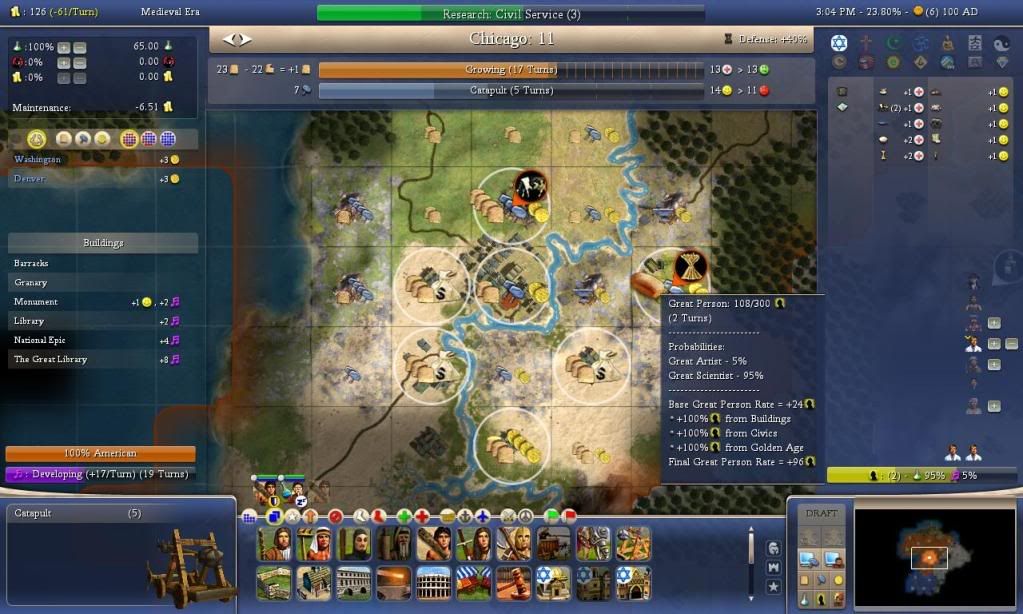Artichoker
Emperor
- Joined
- Dec 21, 2007
- Messages
- 1,711
Its important to understand all the potential strategies, my first thoughts were the GPP as you said since you can stay in slavery and just pop into caste/pacifism and bust out a bunch of GPs, but as you play you kind of half run into other strategies that would have worked better if you planned them earlier based on your map.
Right now the GAs I get every game are from music and then from building the Taj. All my strategies revolve around civic switching at those points in the game. A recent game I had a city that at 1 AD could run 8 specialists, but wanted to stay in slavery. I busted out several golden ages and only ran caste during those times - and managed to pop out a lot of great people.
The combo can be very strong indeed...one thing I like to do is run Pacifism anyway, even when I'm in Slavery. During the period before the Golden Age, a Library provides 2 scientists slots and I can get a 3rd slot from one of several buildings.
I find that with typical food levels, however, running 4 or more specialists will tend to stunt growth. With Pacifism, you don't need a spectacular GP Farm to generate enough great people. With 3 specialists in 3 or more cities, you can really get a lot of great people.
As for the choice of the 3rd specialist, I am leaning toward the spy (unlocked by the Courthouse). The 1st non-scientist great person you get can be used on a Golden Age, but the 2nd one is more problematic. Using a spy as your 3rd specialist solves this problem completely since you can use the Great Spy to infiltrate and gain some extra techs.

 .
. .
.
 from barracks) can help too, as can free religion if you have access to religions. I mean, a simple empire could see the following:
from barracks) can help too, as can free religion if you have access to religions. I mean, a simple empire could see the following: and 2 free scientists, but no scientist slots.
and 2 free scientists, but no scientist slots.